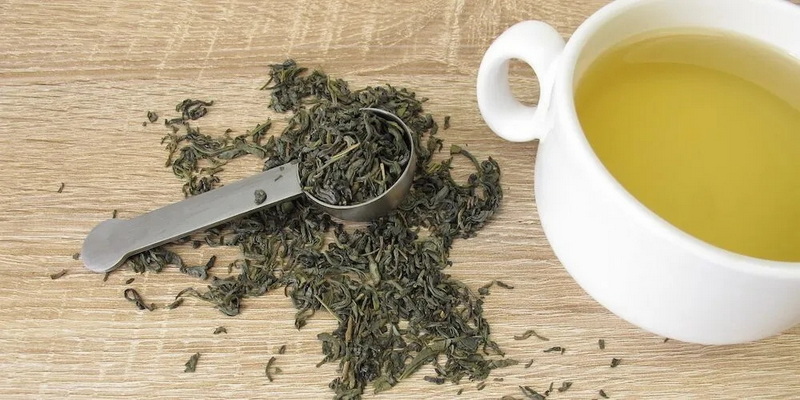Content Menu
● What is Green Tea Extract? A Concentrated Source of Goodness
>> Key Components of Green Tea Extract
>> Forms of Green Tea Extract
● Potential Health Benefits of Green Tea Extract: What Does the Science Say?
>> Antioxidant Powerhouse
>> Heart Health
>> Weight Management
>> Brain Health
>> Liver Health
>> Other Potential Benefits
● Potential Risks and Side Effects: What You Need to Know
>> Caffeine-Related Side Effects
>> Liver Toxicity
>> Gastrointestinal Issues
>> Drug Interactions
>> Other Considerations
● Dosage and Usage: How to Take Green Tea Extract Safely
● Conclusion
● Frequently Asked Questions (FAQ)
>> 1. What is the best time to take green tea extract?
>> 2. Can I take green tea extract if I am sensitive to caffeine?
>> 3. How long does it take to see results from green tea extract?
>> 4. Are there any interactions between green tea extract and medications?
>> 5. Is it safe to take green tea extract long-term?
● Citations:
Green tea, derived from the Camellia sinensis plant, has been consumed for centuries, primarily in Asian countries, and is now popular worldwide[5]. Known for its refreshing taste and potential health benefits, green tea has become a staple beverage for many health-conscious individuals[5]. Green tea extract (GTE) is a concentrated form of green tea, packing a more potent punch of its active ingredients into a smaller, more convenient package[5]. But with all the buzz around it, a crucial question arises: Should you take green tea extract?

What is Green Tea Extract? A Concentrated Source of Goodness
Green tea extract is derived from the leaves of the Camellia sinensis plant, the same plant that gives us green tea, black tea, and oolong tea[4]. The key difference lies in the processing: green tea leaves are not fermented, which helps retain their beneficial compounds[4]. Green tea extract is produced by extracting these compounds and concentrating them, resulting in a supplement that contains a higher concentration of antioxidants, vitamins, and minerals than regular green tea[5].
Key Components of Green Tea Extract
- Catechins: These are polyphenol antioxidants, with epigallocatechin gallate (EGCG) being the most abundant and well-studied[5]. Catechins are responsible for many of the purported health benefits of green tea extract[5].
- Caffeine: Green tea extract contains caffeine, although typically less than coffee or some other teas[1]. The caffeine content can vary depending on the specific extract[4].
- Other Antioxidants: Besides catechins, green tea extract contains other antioxidants like quercetin, which contribute to its overall health-promoting properties[5].
Forms of Green Tea Extract
Green tea extract is available in various forms:
- Capsules: This is the most common form, offering a convenient and standardized dose[5].
- Powders: Green tea extract powder can be added to smoothies, beverages, or other foods[5].
- Liquids: Liquid extracts are also available, often taken directly or mixed with water[5].
Potential Health Benefits of Green Tea Extract: What Does the Science Say?
Green tea extract has been studied for its potential benefits in various areas of health. Here's a look at some of the key findings:
Antioxidant Powerhouse
Green tea extract is a rich source of antioxidants, which help protect the body against oxidative stress caused by free radicals[5]. Oxidative stress is implicated in aging and various diseases[5]. Studies have shown that green tea extract can increase the body's antioxidant capacity, helping to neutralize free radicals and prevent cell damage[5].
Heart Health
Research suggests that green tea extract may promote heart health by:
- Reducing Blood Pressure: Some studies have shown that green tea extract can help lower blood pressure in individuals with hypertension[5].
- Improving Blood Fat Levels: Green tea extract may help reduce total cholesterol, LDL (bad) cholesterol, and triglycerides, all of which are risk factors for heart disease[5].
- Decreasing Inflammation: The antioxidants in green tea extract can help reduce inflammation in the arteries, promoting better blood flow[5].
Weight Management
Green tea extract is a common ingredient in weight loss supplements, and some studies suggest it may aid in weight management[5]. It may work by:
- Boosting Metabolism: Green tea extract may help increase metabolism, leading to increased calorie burning[5].
- Promoting Fat Oxidation: Some research indicates that green tea extract can enhance fat oxidation, helping the body use fat for fuel[5].
Brain Health
The antioxidants in green tea extract, particularly EGCG, may protect brain cells from oxidative stress, potentially reducing the risk of neurodegenerative diseases like Alzheimer's and Parkinson's[5]. Green tea extract may also enhance memory and cognitive function by improving the connection between different parts of the brain[5].
Liver Health
Studies suggest that green tea extract can keep your liver healthy[5].
Other Potential Benefits
- Blood Sugar Regulation: Green tea extract might help improve insulin sensitivity and regulate blood sugar levels[5].
- Cancer Prevention: Some studies suggest that green tea extract may have anti-cancer properties, potentially inhibiting the growth of cancer cells[2].
- Exercise Recovery: Green tea extract may help reduce muscle damage and inflammation after exercise, promoting faster recovery[5].
- Skin Health: Green tea extract can keep your skin healthy[6].
It's important to note that while these potential benefits are promising, more research is needed to fully understand the extent of green tea extract's effects and to confirm these findings[5].

Potential Risks and Side Effects: What You Need to Know
While green tea extract offers numerous potential benefits, it's crucial to be aware of the potential risks and side effects[1].
Caffeine-Related Side Effects
Green tea extract contains caffeine, which can cause side effects in some individuals[1]. These may include:
- Anxiety[1]
- Tremors[1]
- Irritability[1]
- Insomnia[3]
- Headaches[3]
- Increased Heart Rate[11]
People who are sensitive to caffeine should exercise caution when taking green tea extract[10].
Liver Toxicity
In rare cases, green tea extract has been linked to liver problems[1]. Symptoms of liver issues may include:
- Yellowing of the skin or eyes (jaundice)[7]
- Nausea[1]
- Stomach pain[1]
- Dark urine[7]
- Unexplained fatigue[12]
If you experience any of these symptoms, discontinue use and consult your healthcare provider immediately[1].
Gastrointestinal Issues
Some people may experience gastrointestinal side effects such as:
- Nausea[3]
- Vomiting[3]
- Diarrhea[3]
- Abdominal pain[3]
- GI bloating[3]
Taking green tea extract with food may help reduce these side effects[3].
Drug Interactions
Green tea extract may interact with certain medications, such as:
- Blood thinners
- Certain heart medications
- Medications that affect the liver[11]
If you are taking any medications, consult your healthcare provider before using green tea extract[11].
Other Considerations
- Dosage: High doses of green tea extract may increase the risk of side effects[1]. It's important to adhere to recommended dosages[5].
- Quality: Choose high-quality green tea extract supplements from reputable brands to ensure purity and potency[5]. Because supplements are not FDA regulated to ensure safety, purity, or verification of contents, you should only purchase supplements that have been analyzed by an independent lab to verify purity and content[5].
- Individual Variation: People may react differently to green tea extract. Some may experience significant benefits with no side effects, while others may be more sensitive[3].
Dosage and Usage: How to Take Green Tea Extract Safely
The appropriate dosage of green tea extract can vary depending on the individual, the specific product, and the intended use[5]. However, some general guidelines can help ensure safe and effective use[5]:
- Recommended Dosage: A common recommendation is 250-500 mg per day[5].
- Timing: It's generally recommended to take green tea extract with food to minimize gastrointestinal side effects and improve absorption[3].
- Cycling: Some people choose to cycle green tea extract, taking it for a certain period (e.g., 8-12 weeks)
Conclusion
In summary, green tea extract is a potent supplement that offers a range of potential health benefits, including antioxidant support, heart health promotion, weight management assistance, and brain health enhancement. However, it is essential to consider the potential risks and side effects associated with its use, particularly concerning caffeine sensitivity and liver health.
Before starting any new supplement regimen, including green tea extract, it’s crucial to consult with a healthcare provider, especially if you have existing health conditions or are taking medications. By understanding both the benefits and risks, you can make an informed decision about whether green tea extract aligns with your health goals.
Ultimately, while green tea extract can be a valuable addition to a healthy lifestyle, it should not replace a balanced diet and regular exercise. Emphasizing whole foods and maintaining an active lifestyle will yield the best results for overall health and well-being.

Frequently Asked Questions (FAQ)
1. What is the best time to take green tea extract?
The best time to take green tea extract is typically with food. This can help minimize gastrointestinal side effects and enhance absorption. Some people prefer taking it in the morning or early afternoon to avoid potential sleep disturbances due to its caffeine content.
2. Can I take green tea extract if I am sensitive to caffeine?
If you are sensitive to caffeine, it is advisable to use caution when taking green tea extract. Consider opting for decaffeinated versions or lower doses, and monitor how your body responds. Consulting with a healthcare provider before starting any new supplement is also recommended.
3. How long does it take to see results from green tea extract?
The time it takes to see results from green tea extract can vary based on individual factors such as diet, exercise routine, and overall health. Some people may notice benefits within a few weeks, while others may take longer. Consistent use combined with a healthy lifestyle will yield the best results.
4. Are there any interactions between green tea extract and medications?
Yes, green tea extract can interact with certain medications, including blood thinners and medications that affect liver function. It’s essential to consult with your healthcare provider about potential interactions if you are taking any medications before starting green tea extract.
5. Is it safe to take green tea extract long-term?
While many people can safely take green tea extract long-term at recommended dosages, some individuals may experience side effects or complications over time. It's advisable to periodically reassess your need for the supplement and consult with a healthcare provider for personalized guidance.
Citations:
[1] https://www.urmc.rochester.edu/encyclopedia/content?contenttypeid=19&contentid=greenteaextract
[2] https://pmc.ncbi.nlm.nih.gov/articles/PMC6412948/
[3] https://www.vumc.org/poison-control/toxicology-question-week/march-12-2021-what-are-adverse-effects-green-tea-extract
[4] https://www.canada.ca/en/health-canada/services/food-nutrition/public-involvement-partnerships/notice-modification-list-permitted-supplemental-ingredients-permit-use-green-tea-extract-supplemental-ingredient-foods/document.html
[5] https://www.healthline.com/nutrition/10-benefits-of-green-tea-extract
[6] https://health.clevelandclinic.org/green-tea-extract-a-better-way-to-boost-energy-or-not
[7] https://www.tga.gov.au/news/safety-alerts/camellia-sinensis-green-tea-extract
[8] https://pubmed.ncbi.nlm.nih.gov/18484782/
[9] https://www.rutgers.edu/news/green-tea-extract-may-harm-liver-people-certain-genetic-variations
[10] https://www.medicalnewstoday.com/articles/269538
[11] https://www.webmd.com/vitamins/ai/ingredientmono-960/green-tea
[12] https://www.canada.ca/en/health-canada/services/drugs-health-products/medeffect-canada/safety-reviews/green-tea-extract-containing-natural-health-products-assessing-potential-risk-liver-injury.html






























